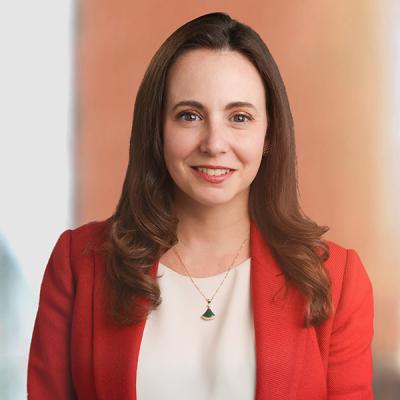California Health Care Legislative Update: Winter 2024
Governor Newsom signed over 1300 bills and vetoed almost 190 bills in 2024. Consistent with prior years, in 2024, California enacted multiple laws significantly impacting the health care industry. From artificial intelligence (AI) to providers to health plans, these new laws require proactive efforts to ensure on-going compliance.
We highlight below the most important of the heath care-focused bills passed during this year. Unless otherwise noted, these new laws are effective January 1, 2025.
Notably, among the vetoed bills was AB-3129 which, as we discuss here, would have authorized the California Attorney General to review certain private equity group and hedge fund health care transactions. Similarly, SB-966 was vetoed which would have established, for the first time, a licensing, oversight, and reporting structure for pharmacy benefit managers. Lastly, from an enforcement perspective, the California Department of Managed Health Care issued a rare fine for failure to obtain a health care service plan license by a behavioral health company offering employee assistance program services.
Artificial Intelligence
AB-3030: Artificial Intelligence in Patient Communications
AB-3030 requires a disclaimer for any AI-generated patient communication involving clinical information (i.e., not solely scheduling, billing, clerical, or similar information). The waiver must state that the communication was created utilizing generative AI and provide express instructions describing how the patient can contact a human health care provider or other appropriate person. The law applies to any health facility, clinic, or physician’s office and to both written and oral patient communications containing clinical information.
Additionally, AB-3030 applies to each generative AI communication containing clinical information regardless of whether the patient previously received such a generative AI communication. Importantly, if a generative AI communication is read and reviewed by a licensed or certified health care provider prior to dissemination to the patient, the disclaimer is not required.
SB-1120: Artificial Intelligence in Prior Authorizations
SB-1120 requires full and specialized health care service plans and disability insurers using (or contracting with entities using) AI-enabled, algorithmic, or other software tools for utilization review (UR) or utilization management (UM) to ensure compliance with certain requirements. This includes software tools that assess medical necessity, in whole or in part, in connection with prospective, retrospective, or concurrent UR/UM review functions. Health care service plans and disability insurers must implement and disclose to requesting providers their written policies and procedures ensuring that AI-enabled, algorithmic, or other software tools base medical necessity determinations upon clinical or other specified information that is fairly and equitably applied.
Importantly, such tools are prohibited from making final medical necessity determinations to delay, deny, or modify care. Licensed health care professionals competent to evaluate the specific clinical issues involved are solely authorized to make these medical necessity assessments by reviewing (1) the requesting provider’s recommendation, (2) the enrollee’s medical or other clinical history, and (3) individual clinical circumstances.
Health Facilities/Providers
AB-2107: Remote Review of Clinical Laboratory Tests
Pursuant to the Clinical Laboratory Improvement Amendments of 1988 (CLIA) and California law, laboratory tests (including the review and reporting of the laboratory test results) must be performed in licensed clinical laboratories. AB-2017 allows California laboratories to permit remote reviewing and reporting of “digital materials” if CLIA requirements are met including that the remote location must be under the primary site’s CLIA certificate. “Digital materials” are defined as digital laboratory data, digital results, and digital images that do not require a microscope or other equipment essential to a separate laboratory.
Importantly, on or before June 20, 2025, the California Department of Public Health must consult with the Centers for Medicaid & Medicaid Services to assess whether such remote review conforms with CLIA. The parties must make their final determination by January 1, 2026.
AB-2297: Hospital and Emergency Physician Charity Care
Existing California law allows emergency physicians to choose to grant eligibility for a discount payment policy to patients with incomes up to 350% of the federal poverty level. AB-2297 adjusts this limit to up to 400% of the federal poverty level. Further, the law clarifies that out-of-pocket costs for “high medical costs” means any expenses for medical care that are not reimbursed by insurance or a health coverage program, such as Medicare or Medi-Cal cost sharing.
AB-2297 also eliminates the authority for a hospital to consider monetary assets in determining eligibility for both charity care and discount payment policies, but hospitals may consider the patient’s or family’s health savings account. Additionally, neither hospitals nor emergency physicians may utilize liens on any real property as a means of collecting unpaid hospital or emergency physician bills owed by a patient. Lastly, hospitals and emergency physicians may not (1) require patients to apply for Medicare, Medi-Cal, or other coverage before screening for/providing discount payment or (2) deny eligibility based upon the timing of a patient’s application.
AB-2319: Required Maternal Health Training
Under existing California law, hospitals and clinics providing perinatal care must provide biannual implicit bias training to certain types of health care providers. AB-2319 expands the list of health care providers required to complete implicit bias training to include all licensed health care providers under Division 2 of the California Business and Professions Code who are regularly assigned to provide perinatal care in primary care and outpatient clinics, alternative birthing centers, and emergency departments. Further, persons who regularly interact with perinatal patients must complete such training including those who facilitate or coordinate access to treatment.
Pursuant to AB-2319, all training must be completed by June 1, 2025 and within six months of the hire date for newly-hired personnel. On or before February 1, 2026, hospitals must annually submit to the California Attorney General proof of compliance including expressly categorizing and delineating the type of personnel determined not required to receive implicit bias training.
SB-1061: Reporting of Consumer Medical Debt
SB-1061 prohibits hospitals and other health care providers from providing medical debt information to any consumer credit reporting agency (CRA). The phrase “medical debt” includes medical bills that are not past due or have been paid and expressly excludes cosmetic surgery-related medical debts. Further, any hospital or other covered health care provider knowingly furnishing consumer medical debt information to a CRA renders the underlying medical debt void and unenforceable.
Additionally, SB-1061, requires health plans to send notices both to the insured and provider in instances where insurance payments are sent directly to the insured. If the provider does not receive payment from the insured within 30 days of the notice or one year after the initial bill, the amount owed to the provider may be reported to the CRA as medical debt. Lastly, hospitals and covered health care providers must maintain a list of all debt collectors to whom medical debt claims are sold or assigned and such collectors must report any litigation resulting from the underlying debt.
SB-1300: Public Disclosure and Hearing Prior to Closing Maternity Ward or Psychiatric Unit
Under existing law, a health facility is required to provide 90 days of public notice of a proposed closure or elimination of a maternity ward or psychiatric unit. SB-1300 extends the notice period required before the closure of a maternity ward or psychiatric unit from 90 days to 120 days. Pursuant to SB-1300, a health facility is required to hold at least one public hearing within 60 days of providing public notice of the proposed closure of a maternity ward or psychiatric unit and must accept public comment. Further, the health facility must notify the board of supervisors of the county in which the health facility is located and invite the board of supervisors to provide testimony on the impact that the closure will have on the county and community health systems.
Health Plans
AB-3275: Reduces Timeframe for Plan Claim Reimbursement
AB-3275 shortens the time period for health care service plans, including Medi-Cal managed care plans, or health insurers to reimburse a completed clean claim or a portion thereof from 45 calendar days to 30 calendar days after receipt of the claim. If the claim is incomplete, health care services plans or insurers must notify the claimant no later than 30 calendar days from the date that the claim is contested or denied. Additionally, the law increases the daily penalties for late claims to the greater of $15 or 10% of the accrued interest.

California Health Care Legislative Update: Fall 2023
November 7, 2023| Blog|

California Health Care Legislative Update
June 15, 2021| Blog|




